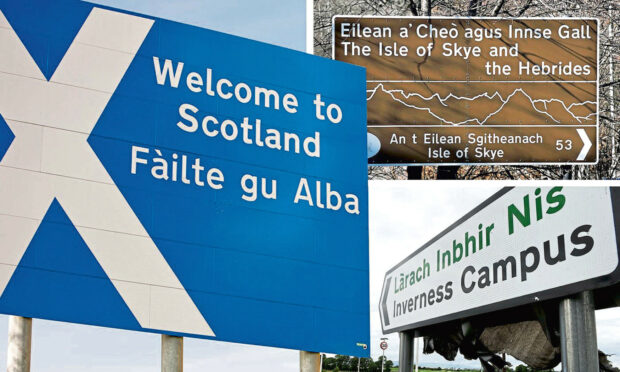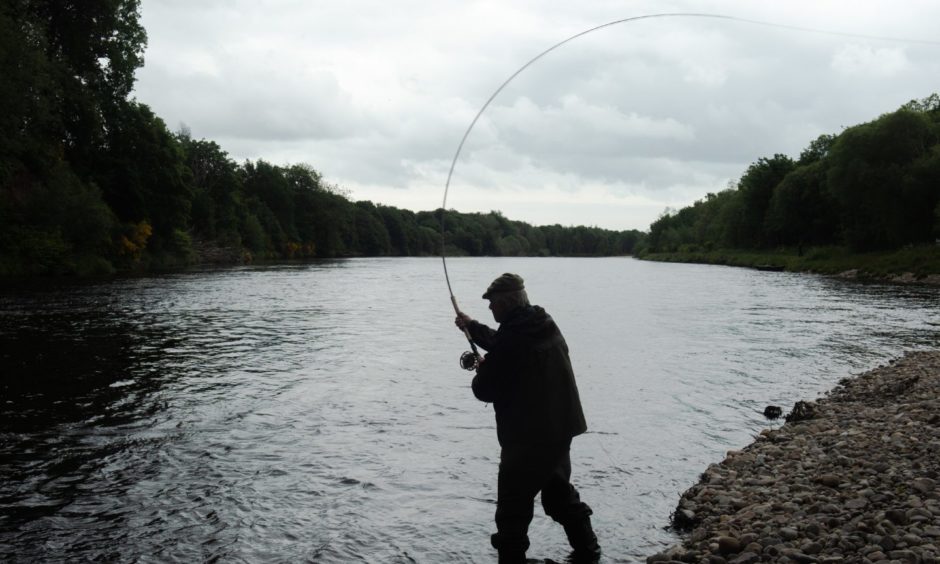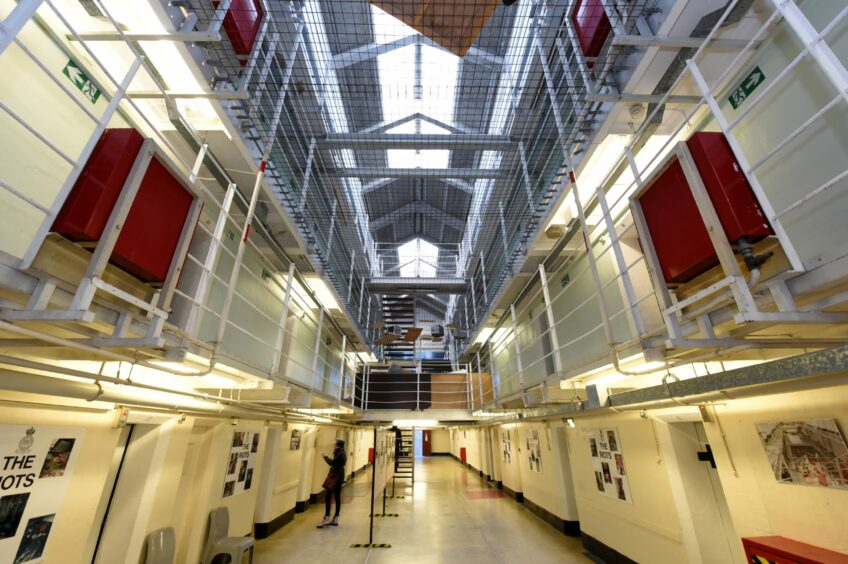Sir, – I have to agree with Jim Leitch (Letters, February 1). The spread of Gaelic signage is a waste of money from a government which spends its time pleading poverty.
Firstly, while preserving Gaelic as a language is a worthy cause, there are (official figures) about 87,000 Gaelic speakers out of a population of around five million. This is not a priority for most, as pretty well all of these 87,000 also speak English, often with Gaelic as a rarely used second language.
Second, Gaelic has not been a major language in Scotland since around the 14th Century, outside of the Highlands. This is not an encouragement for a dying language, but an attempt to resurrect something dead and gone. There are far more speakers of Doric, Glaswegian, broad Scots and even that strange Oxford English of the Edinburgh toffs, so why not use appropriate signage? Could be fun.
Initially, bilingual road signs were seen as amusing the tourists, which is fair enough in Argyll – less so in Aberdeen – but their spread is difficult to justify in these chilly times. Apart from potholes, possibly the money saved could be spent on repairing a few of our historic buildings (which the tourists come to see), or even buying a few decent ferries.
Mind you, I hear that Gaelic is an excellent language for swearing, which may have some use in dealing with potholes.
Graeme Allan, Mulben, Keith.
Oil giants are arrogant polluters
Sir, – BP are once more proving themselves as morally bankrupt as the rest of the redundant petrochemical industry.
Claiming that they will invest less in the clean renewables that people not only want but need to keep their energy costs dramatically down is utterly reprehensible and demonstrates arrogance and contempt – not only for the public, but the very environment they and other oil companies have polluted beyond imagination.
Oil & Gas UK’s Mike Tholen’s remarks about “killing the golden goose” will have radically different emphasis when the oil age is done. Aside from the ultra-childish, fairy-tale nonsense that conjures up the other equally laughable one about “very substantial taxes” considering how that tax take has been diminished by fossil fuel lobbying and what can only be called creative accounting over the previous decades.
The idea that these earnings were made by companies outside the UK couldn’t be taxed is misleading – not least as everyone knows that they have UK-based offices and facilities and therefore are liable.
Ian Beattie, Baker Street, Aberdeen.
Women’s security must be protected
Sir, – I felt I had to respond to Peter Smith’s somewhat confusing letter (Press and Journal, February 5), which was responding to my letter (February 1).
I do not intend to diminish the letters page by correcting his many wrong assertions made in anger. The only question I have for Mr Smith is regarding his comment that we should support our elected representatives no matter what (excluding the Tories apparently).
So even in extreme situations when things are so scientifically and dangerously incorrect, Mr Smith’s assertion means we must support the fact that a man can become a full-blown woman just by saying so?
Does he really believe his own words? Does he believe that standing up for the safety, security and dignity of women and children is so very wrong? Surely not?
Pauline Eggermont, Beauly.
Interest rate rises will cost in benefits
Sir, – Last week, the Bank of England raised interest rates again, and the government says they will not give tax cuts – all to get inflation down.
These measures stop people spending money, and this leads to businesses either laying off staff or closing.
In the few weeks when Liz Truss was prime minister, she said the only way to bring down inflation is to reduce taxes and interest rates, which would encourage the public to spend more money and manage their finances more sensibly, having been given one last chance. The bank and government’s plan causes more thousands to be unemployed and costs more in benefits to be paid by the government.
Don McKay, Provost Hogg Court, Torry, Aberdeen.
Fish farms must be brought onshore
Sir, – There definitely is an active campaign against anglers in the media these days from aquaculture, (P&J columnist Martin Jaffa, February 6). It’s sickening to read given the amount of catch and release/restraint shown by anglers to protect fish with more than 95% released annually.
Catches in rivers from 2010-12 were very good in Scotland. Angling tourism brings in £150 million in much-needed angling revenue to our fragile rural economies in spring, summer and autumn months.
If we look at diseased fish farm escapees, who get into our Scottish rivers, then there’s no doubt they are having a catastrophic impact, along with diluting the wild fish gene pool, as the salmon eggs are imported from Norway. If salmon farming was healthy, why are 15 million salmon dying annually on fish farms in Scotland? What a waste to feed these animals, only to see them perish. It’s simply unsustainable.
I note the author mentions Sepa, but fails to mention they publish their inspection reports on fish farms 12 months after their site visits. There is no place for intensive, mass-produced salmon farms in our coastal fringes. They must be brought onshore, as they are in many other global countries to meet the demand of an ever-growing population.
Ken Reid, Glenlogie House, Inchmarlo.
Buyer’s regret on Brexit is growing
Sir, – Both Conservatives and Labour seem terrified to mention Brexit, as they desperately try to make it work. It’s therefore worth remembering the many promises, including £350 million per week for the NHS, made by Leave in the 2016 EU referendum – none of which have been met. In fact, many who backed Leave, on what was a very small majority win, now regret it.
As the third anniversary of actually leaving the EU passes, with a cost-of-living crisis and a breakdown in public services, the Tory vision of a global Britain has not happened. In truth, Brexit has increased food prices, set up trade barriers and created labour shortages. Various London government agencies have reported a shortfall of 300,000 in the UK labour force – directly due to the impact of the freedom-of-movement restrictions.
All of this and more has not only greatly promoted the independence movement in Scotland, but also throughout the UK.
Grant Frazer, Newtonmore.
Support for carers falls woefully short
Sir, – Moving “bed blocking” (or more correctly, “care system failed”) patients from hospitals to care homes is a political sleight of hand. It is no more a solution now than it was when Covid struck.
While posing as a solution, it simply shifts the problem on to a more vulnerable, less vocal, segment of the population. TV images of patients in A&E corridors fade away but, out of sight of cameras, thousands of unpaid carers dispersed around the country will start to suffer.
My wife suffers from both serious mental illness and a degree of cognitive impairment. I prefer to care for her at home. This is both good for my wife and saves the NHS and/or my local council a fortune. I appreciate very much the support I get, but the truth is that it falls far short of what is promised.
Caring can take a significant toll on the health of carers. The effort required in constantly wrestling with various organisations to get the support that we are entitled to does further damage. Since starting as a carer last year, I am now on medication for high blood pressure and stress-induced angina. I am eligible to access up to eight weeks respite over a year. My break in December was cancelled at the last minute, due to a few cases of Covid in the care home my wife was booked into. My next care home booking, for February, was also cancelled. It turns out this is due to the Care Inspectorate issuing an improvement notice.
The Scottish Government seems so determined to appear progressive that it has lost the ability to deal with its basic responsibilities. Its priorities lately appear to be focused on gender recognition and reform and assisted dying – perhaps the latter topic is their idea of the “final solution” for the embarrassment of bed blocking?
Cameron Laing, Ness Circle, Ellon.
Winding up in jail is your own fault
Sir, – “Is jail really the right response to crime?” questions Lavinia Ismail, having visited Peterhead Prison museum and emerging shocked by the conditions prisoners lived under in “Scotland’s toughest prison”.
There is no doubt that few emerge from incarceration reformed, but what are the alternatives? A victim of crime has no choice, but receives little recompense, with life in many instances irreparably damaged. So if they pay the price for their misbehaviour and are sentenced to a term behind the high walls, whose fault is it but their own?
Behave and be free: the lifestyle of the decent and law-abiding in our society.
Some may be transformed by rehabilitation, but prisons will remain a necessity to keep those resistant to advice on acceptable behaviour from preying on innocent members of the public, whose lives are so much enhanced with the knowledge that those with criminal intent are securely held in establishments with the address HMP.
Ivan W Reid, Kirkburn, Laurencekirk.
A poem for dear departed Goodwin
Sir, – What a shame Jim Goodwin got the sack.
Why should he get all the blame?
He didn’t even kick a ball. So why should he get blamed at all?
The players had a part to play, so it’s their fault I would say.
He’s been criticised all along and tried his best to stay strong.
How much more could he take – he’s lost his job, for God’s sake.
We all want our team to win, but we must take it on the chin.
Dot Niven, Loch Court, Aberdeen.
Clean air or the life of a child?
Sir, – Low emission zones (LEZ) are a way to help improve air quality and reduce emissions from vehicles (EE, January 23).
However, there can be drawbacks for the poorer driver such as the cost of upgrading or replacing vehicles and the inconvenience of going four miles instead of one on rerouted journeys.
Professor Hinks, a leading UK asthma expert, says “Aberdeen’s LEZ will likely prove unpopular – but must be done to save lives”(EE, February 2). The recent meddling by Aberdeen City Council by blocking off roads to traffic will see the air pollution move elsewhere. Roads will be gridlocked with idling vehicles causing pollution in those areas and repeating the same problem.
The Scottish Government’s Twenty’s Plenty plans will not be adhered to by many drivers, causing pollution, and the risk of concentrating on their speedometers could result in injuring, maiming or killing someone’s child in the name of clean air.
What is more important? The decision is with our city’s fathers and mothers.
T. Shirron, Aberdeen.
We would love to hear about the issues that matter to you – email letters@pressandjournal.co.uk or ee.letters@ajl.co.uk with your full address and daytime phone number to be verified.





Conversation